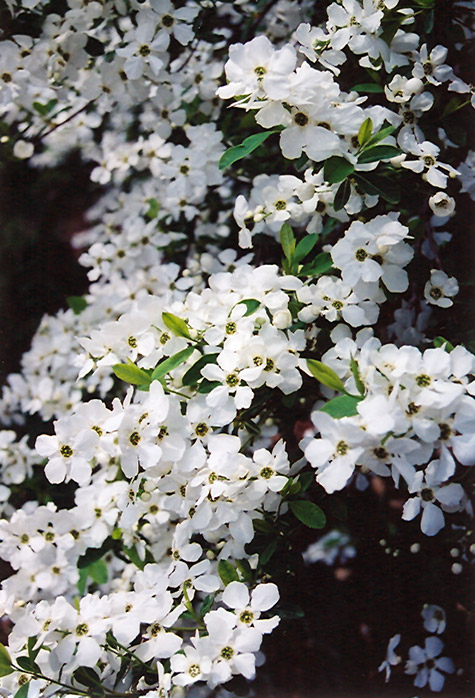Find Plants
Height: 12 feet
Spread: 10 feet
Sunlight:
![]()
![]()
Hardiness Zone: 4
Description:
A beautiful large shrub prized for its showy white flowers in early spring and curious pearl-shaped flower buds, recedes into the background the rest of the year; benefits from an occasional pruning to keep it looking its best
Ornamental Features
Common Pearlbush features showy racemes of white flowers along the branches in mid spring. It has green deciduous foliage. The oval leaves do not develop any appreciable fall color.
Landscape Attributes
Common Pearlbush is a multi-stemmed deciduous shrub with an upright spreading habit of growth. Its average texture blends into the landscape, but can be balanced by one or two finer or coarser trees or shrubs for an effective composition.
This is a relatively low maintenance shrub, and should only be pruned after flowering to avoid removing any of the current season's flowers. It has no significant negative characteristics.
Common Pearlbush is recommended for the following landscape applications;
- General Garden Use
Planting & Growing
Common Pearlbush will grow to be about 12 feet tall at maturity, with a spread of 10 feet. It tends to be a little leggy, with a typical clearance of 2 feet from the ground, and is suitable for planting under power lines. It grows at a medium rate, and under ideal conditions can be expected to live for approximately 30 years.
This shrub does best in full sun to partial shade. It prefers to grow in average to moist conditions, and shouldn't be allowed to dry out. It is not particular as to soil type, but has a definite preference for acidic soils. It is highly tolerant of urban pollution and will even thrive in inner city environments. This species is not originally from North America.
Disclaimer - This Plant Finder tool is an online resource representing many of the varieties that we carry over the course of the season, and is intended for informational purposes only. Inventory varies seasonally, so we cannot guarantee that every plant will be in stock at all times - please contact the store directly for availability. It does not include our entire inventory of plants, so be sure to visit our store to see varieties that may not be represented on this list.


